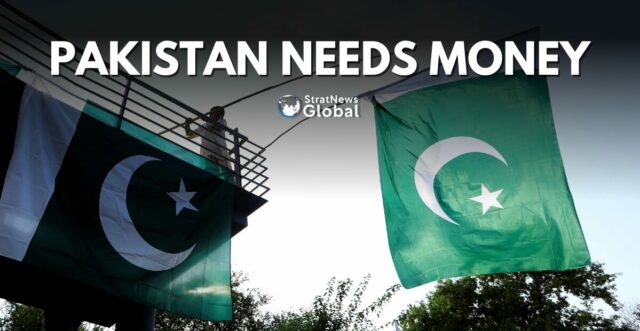Pakistan is set to secure up to $4 billion from Middle Eastern commercial banks by the next fiscal year to address its external financing needs. This plan was revealed by Jameel Ahmad, the Governor of the State Bank of Pakistan, during his first media interview since taking office in 2022.
Securing IMF Approval
In addition to this funding, Pakistan is also in the final stages of securing an additional $2 billion in external financing. This step is crucial for the approval of a $7 billion bailout programme from the International Monetary Fund (IMF). Pakistan and the IMF reached an agreement in July, contingent upon approval from the IMF’s executive board and confirmation of financing assurances from Pakistan’s development and bilateral partners.
Governor Ahmad expressed confidence that Pakistan’s gross financing needs will be met smoothly over the next fiscal year and in the medium term. Historically, Pakistan has relied on countries like China, Saudi Arabia, and the United Arab Emirates to roll over debt, avoiding repayment crises. Ahmad anticipates similar support in the coming years, providing the government with more time to stabilise its finances.
Improved Economic Outlook
Ahmad also shared an optimistic outlook on Pakistan’s gross financing needs, suggesting they would be lower than the IMF’s May projection of 5.5% of GDP. He attributed this to a lower-than-expected current account deficit in fiscal 2024 and future years.
Pakistan’s external gross financing needs have been declining over the past few years. The central bank’s assessment suggests a reduced ratio of gross financing needs to GDP compared to the IMF’s estimates.
Monetary Policy And Inflation Control
Regarding monetary policy, Ahmad highlighted that recent interest rate cuts have successfully curbed inflation and stabilised the current account. Pakistan’s inflation rate dropped to 11.1% in July from over 30% in 2023. The central bank, which reduced interest rates from 22% to 19.5% over two meetings, will review its monetary policy again on September 12.
Despite concerns that lower interest rates might encourage increased government borrowing, Ahmad stated that the government is expected to maintain its focus on fiscal consolidation.
Overcoming Economic Challenges
Reflecting on his first year as central bank governor, Ahmad described it as challenging. Pakistan faced a severe balance of payments crisis in 2023, with central bank reserves barely sufficient to cover a month’s imports. However, after extensive negotiations with the IMF, Pakistan secured a nine-month, $3 billion bailout programme.
Ahmad emphasised that the central bank’s current priorities include economic growth, digitalisation, and financial inclusion. While maintaining price and financial stability, these goals are vital for job creation and addressing socioeconomic challenges.
(With Inputs from Reuters)
Research Associate at StratNewsGlobal, A keen observer of #China and Foreign Affairs. Writer, Weibo Trends, Analyst.
Twitter: @resham_sng





